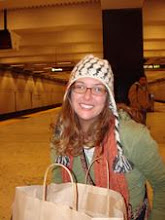What does being independent mean?
Yesterday PNG celebrated its 34th year of independence. Here in Madang this was marked by a parade complete with PNG flags waving from car antennas, piles of men, women and children in traditional dress beating kundu drums from the back of Land Cruisers, and an address by the Prime Minister himself, Michael Somare.
Relatively speaking PNG is a young country, not too much older than myself, yet the ‘western world’ sets exceedingly high expectations. These high expectations do not come without high costs.
I am not an economist or anthropologist, nor do I claim to have had a formal training in international development. However, I feel I am in a unique position with an interesting perspective. I am a “westerner” living and working alongside Papua New Guineans at a grassroots level. I may not have the answers, nor may I be able to write with the level of understanding that some of my readers may be expecting from an international development worker, however, I am able to reflect upon what I have experienced and ask questions.
With such high dependency on foreign aid, which comes mostly from AusAID, is PNG independent? Would PNG and its dependency on the infamous ‘cargo culture’ function more independently if all volunteers, missionaries, expatriates and development workers were to leave tomorrow? And who’s to say whether the ‘western way’ is the way for PNG?
All I know is that in Madang over the past year there has been an increase in jobless youth roaming the streets, settlements have multiplied, and violent crimes are occurring around every corner. It’s a vicious cycle that only a strong, independent state can break. Change must come from within.
Papua New Guineans have left their villages, have paid for an education that is not relevant to their lives, and are given no job opportunities. They cannot return to their villages and live a traditional life of carving canoes, building houses and planting sago. They want Land Cruisers, air conditioning, and coca-cola. When they don’t find jobs to get the things they have seen and tasted and become accustomed to, one does the only thing he feels he can do. Bows and arrows are the things of the past. Guns and knives are in the hands of the desperate youth. And for what? For mobile phones and dvds. Western cargo.
The solution is not to abandon development or to stop providing aid, but these efforts should be joined by an awareness of the unintended consequences of development.
Development brings cultural change — much of it swiftly — but it doesn’t necessarily change all aspects of a culture at the same rate. The resulting clashes between modern capabilities and traditional practices can make some aspects of life worse before they make them better.
This work-consume mode of the western world doesn’t work here in PNG. The People, the Papua New Guineans are rich in land, natural resources, and culture. They are independent of the needs of the western world.
Thursday, September 17, 2009
Subscribe to:
Post Comments (Atom)







2 comments:
I think I understand why you said it might be time for a change now on F.B.
Charlye
Well if I was going to post anything to your blog it would be linked to this entry, so here are a few thoughts (based on my limited understanding).
It seems to me that PNG is barely a nation let alone a state. Historically each wantok was an island a danger to and from each other wantok. There never was an overarching power, and empire or ruler, language or culture.
The option now is not for aid or an independent development. The pressures from international commercial organisations will continue to be exerted and “leaders” will do deals. Elsewhere it is provided as you suggest by a strong state. In PNG the rivalry between wantok’s is so great that a strong state to protect and facilitate anything is unlikely in the near future.
It seems to me that the “aid” helps to ameliorate problems. Not stemming the flow of capitalist change but creating eddies where different options can exist with who knows what long tem impact.
Personally I find myself looking less at the big picture and more at the immediate here and now. Good Buddhism yes but also a recognition that many of the big picture ideas I have had were wrong – at the end of the day China’s industrial development, even with all the negatives, has provided more food for more people than all the liberal participative development project ever did.
So good luck. Please keep sharing your observations and perspectives. The enrich my life and keep reminding me that there is more to the world than my cold damp post industrial village, oh and the cows!
Thanks Charlye
Post a Comment